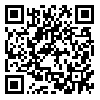Volume 4, Issue 4 (December 2025)
IJER 2025, 4(4): 0-0 |
Back to browse issues page
Download citation:
BibTeX | RIS | EndNote | Medlars | ProCite | Reference Manager | RefWorks
Send citation to:



BibTeX | RIS | EndNote | Medlars | ProCite | Reference Manager | RefWorks
Send citation to:
Moazami Godarzi F, Heidari Tabrizi H, Chalak A. (2025). Impact of Technology-Enhanced Personalized Language Learning on Iranian EFL Learners’ Writing Skill. IJER. 4(4),
URL: http://ijer.hormozgan.ac.ir/article-1-366-en.html
URL: http://ijer.hormozgan.ac.ir/article-1-366-en.html
1- PhD Candidate, Department of English, Isf.C., Islamic Azad University, Isfahan, Iran
2- Professor of Applied Linguistics, epartment of English, Isf.C., Islamic Azad University, Isfahan, Iran ,heidaritabrizi@gmail.com
3- Professor of Applied Linguistics, epartment of English, Isf.C., Islamic Azad University, Isfahan, Iran
2- Professor of Applied Linguistics, epartment of English, Isf.C., Islamic Azad University, Isfahan, Iran ,
3- Professor of Applied Linguistics, epartment of English, Isf.C., Islamic Azad University, Isfahan, Iran
Abstract: (1075 Views)
Objective: The integration of technology into language education has transformed learning environments, allowing for more individualized instruction. However, limited research has explored the effects of technology-enhanced personalized language learning (TEPLL) on writing skills across different learner characteristics. This study aimed to examine the impact of TEPLL on the writing skills of Iranian EFL learners, considering the moderating effects of proficiency level, age, and gender.
Methods: The study was conducted in Fall 2024 with 120 Iranian EFL learners across three proficiency levels (pre-intermediate, intermediate, and advanced). Participants were randomly assigned to either a TEPLL group, which used Moodle for personalized activities, or a traditional instruction group. Writing performance was assessed before and after the intervention.
Results: Findings indicated that the TEPLL group showed significantly greater improvement in writing skills compared to the traditional instruction group. The positive effects of TEPLL were particularly evident among higher proficiency and adult learners. Gender did not significantly moderate the impact of TEPLL.
Conclusion: TEPLL proves to be an effective approach for enhancing writing skills in EFL contexts, particularly for advanced and adult learners. The results underscore the importance of integrating technology-based personalization and tailoring instructional design based on learner proficiency.
Methods: The study was conducted in Fall 2024 with 120 Iranian EFL learners across three proficiency levels (pre-intermediate, intermediate, and advanced). Participants were randomly assigned to either a TEPLL group, which used Moodle for personalized activities, or a traditional instruction group. Writing performance was assessed before and after the intervention.
Results: Findings indicated that the TEPLL group showed significantly greater improvement in writing skills compared to the traditional instruction group. The positive effects of TEPLL were particularly evident among higher proficiency and adult learners. Gender did not significantly moderate the impact of TEPLL.
Conclusion: TEPLL proves to be an effective approach for enhancing writing skills in EFL contexts, particularly for advanced and adult learners. The results underscore the importance of integrating technology-based personalization and tailoring instructional design based on learner proficiency.
Keywords: English Writing, Iranian EFL Learners, Technology-Enhanced Personalized Language Learning (TEPLL)
Type of Study: Original |
Subject:
Educational Studies
Received: 2025/04/2 | Accepted: 2025/06/16 | Published: 2025/12/1
Received: 2025/04/2 | Accepted: 2025/06/16 | Published: 2025/12/1
Send email to the article author
| Rights and permissions | |
 |
This work is licensed under the Creative Commons - Attribution 4.0 International. |






